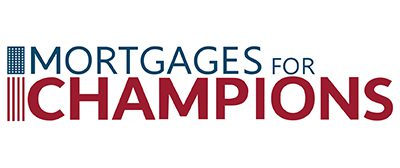Dave Stein, one of the partners at Residential Home Funding Corps., was quoted in the Sunday Star Ledger this past week. He spoke about a little known mortgage loan program, the 203(k) loan. We have loan officers who specialize in the 203(k) loan program here at Residential Home Funding Corp. on standby who will give you a free consultation. Check out the Article below.
There’s a little-known loan for fixer-uppers
By Tom De Poto/The Star-Ledger
Marcus Gaither lives in East Orange, but he saw a three-family home in Newark he thought would be a good investment. Unfortunately, it was not fit to be lived in.
“It needed windows, doors, sinks, kitchen cabinets,” he said. “It needed pretty much everything. It was a total rehab.”
Gaither is a mortgage broker and had done his research on the lending industry. He knew about a mortgage that would let him buy the house and pay for the repair work before he moved in.
He purchased the property for $120,000 and made it livable.
“Some people are afraid to put themselves out as far as buying a property and making mistakes,” he said. “I’m not afraid of the loan. I think it’s a good one.”
The loan he knows about — and few others do — is the little-heard of 203(k) mortgage. It’s a primary mortgage that isn’t based on what the house is worth, but what it will be worth after repairs are made. It’s available to everyone, including first-time homebuyers, but fewer than 300 have been approved so far this year in New Jersey.
“Most lenders want a house a buyer can move right into without any issues,” said David Stein, a partner in Residential Home Funding. “In the case of 203(k)s, properties can be rehabilitated at the same time the buyer purchases it.”
The 203(k) was begun by the federal government in the 1970s to help rehabilitate distressed neighborhoods.
The loans, which are insured by the Federal Housing Administration, are also available as refinance instruments that can be used for upgrades or purchases such as new windows. The minimum loan amount is $5,000.
Stein said the process is similar to getting a construction loan.
“Once a contractor has submitted an estimate and an appraiser from the Housing and Urban Development signs off,” he said, “the money is placed in an escrow account. The contractor gets paid as he completes the work.”
Stein said a lot of real estate agents don’t know about 203(k)s.
“We try to get the message out to our real estate partners, especially after (Tropical Storm) Irene and (Hurricane) Sandy. Because of those storms, we’re doing more 203(k)s than ever before.”
Stein said the number approved 203(k) loans with his company rose between 2010 and 2011 by 70 percent, but fell in 2012 as homeowners wait for FEMA and insurance funding to come through before making a decision on their home.
Statewide, the number has dropped as well. According to Lemar Woolley, a HUD spokesman, approved loans peaked in New Jersey at 894 in 2010, then fell to 797 in 2011, and 651 in 2012. As of May, 288 loans had been approved by HUD.
By comparison, however, it hardly registers as a drop in the bucket — about 92,700 single-family homes were sold in the first three months alone of this year in New Jersey.
“There might be a misbelief that it’s more difficult to get or it might delay the closing, neither of which is true,” said Doug Radford, a partner with Realty Executives in Fairfield.
The loan requires a 3.5 percent down payment, but that number is based on the total sale price plus rehabilitation costs. Interest rates are comparable to a traditional mortgage. The 203(k) loans require a credit score of 640, which is slightly higher than a standard FHA mortgage.
It can also be used to refinance an existing loan to make improvements on a home.
The home equity loan is still the smarter way to consolidate debt, but it is based on the equity in the home, which is determined by subtracting the amount of debt on the house from the home’s market value. In most cases, the loan is 80 percent of that figure.
With a 203(k) loan, the borrower can request more money because the equity is based on the value of the home after the upgrades are made, not before.
When Radford meets a client he thinks would benefit from this type of loan, he asks them, “Have you heard about the 203(k) mortgage?
“Usually they say ‘no,’ Then I say, ‘You should talk to a lender.’ ”
Is this a program that interests you? Learn More: http://www.rhfunding.com/Loan-Programs/203K-Loans/Home-Rehabilitation-Loans/
http://www.nj.com/business/index.ssf/2013/07/theres_a_little-known_loan_for.html

